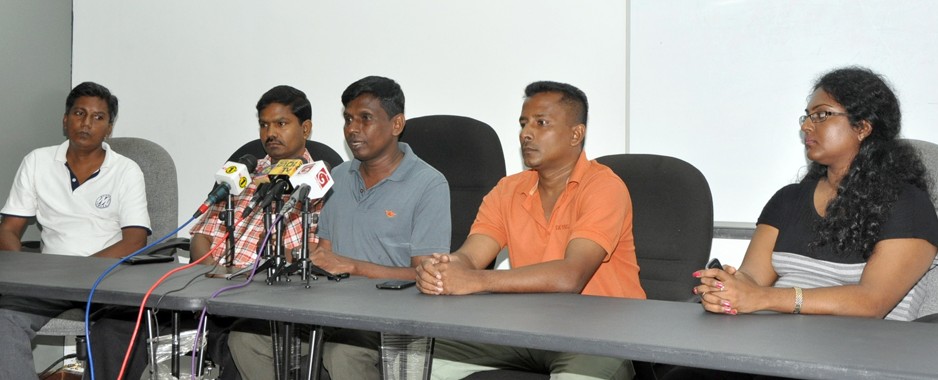July is known as “Black July” in Sri Lanka, due to the anti-Tamil pogrom of 1983, where thousands of Tamils were killed and their properties destroyed. It was a turning point in the ethnic conflict, which saw support for Tamil militancy increase and the birth of Tamil Diaspora. This year’s July, saw a commemoration of “Black July” being interrupted by Police. An event to commemorate the worst riots since then, in June 2014 against Muslims in Aluthgama, was also obstructed by the Police.
July 2014 turned out to be a “Black July” for dissenters. Leaders of the Bar Association and Free Media Movement, a leading political analysts and outspoken Catholic Bishop were threatened, intimidated and subjected to surveillance, while an exiled peace activist, who is now an Australian citizen, was harassed when he applied for a visa to come for his mother’s funeral. Film makers were threatened, several Tamil journalists were threatened, interrogated and obstructed from carrying out their duties when they were covering issues such as sexual abuses and illegal land occupation allegedly committed by the Military. A well-known Al Jazeera journalist was also interrogated. Tamil journalists travelling to Colombo was obstructed in middle of the night by the Police and Army, and the workshop they were travelling to participate had to be cancelled due to threats from a mob that protested outside the venue where the training was due to be held. A protest rally organized in Jaffna also had to be cancelled after the Police obtained a court order against it.
July was also Black month NGOs. The NGO Secretariat, functioning under the Ministry of Defence issued a circular that prohibited NGOs from issuing press releases and organizing press conferences and trainings for journalists. The Department of External Resources also issued a public notice warning about funding for NGOs, and various agencies cooperating with NGOs. USAID was compelled to withdraw funding for voter education programmes after opposition from the Secretary to the Ministry of Defence. The Prime Minister and State Media accused NGOs of being a threat to national security and of having supported terrorism. The government again expressed their opposition to those who may cooperate with the UN’s international investigation, with the official government spokesperson threatening appropriate action against Sri Lankans overseas who may give testimony via skype.
Student Activists were arrested and there were obstructions in getting bail even after a Magistrate ordered them to be released on bail. A student protest was attacked for the third time and Student Unions dissolved. Opposition parliamentarians on a fact finding mission claimed they were obstructed by goons protected by the Police.
The military spokespersons denied there were any attacks against journalists last few years and some government representatives tried to indicate the restrictive circular was only “guidelines” for NGOs. Generally, Police were part of the repression of dissent or choose not to take decisive and firm action to prevent and respond to violations.
But repression was met with resistance and defiance. Even after getting death threats, Sunil Jayasekera, the Convener of the Free Media Movement went ahead with a press conference, exposing the death threats and declaring that “death threats will not deter us”. The President of the Bar Association also choose to publicly expose intimidation and surveillance he was subjected to, along with many other journalists who were threatened, harassed and obstructed. When protest march in Jaffna was stopped, organizers had a meeting in a large public hall, with widespread participation of people affected by abuses, clergy, opposition politicians etc. A film maker summoned by the Police refused to abide, citing his fundamental rights. Lawyers dismissed the circulars and notices related to NGOs as having no legal basis. NGO representatives, concerned persons and groups dumped copies of a circular in a garbage bin and burnt them in public. The courage and determination shown by those subjected to repression and others imminently at risk keeps alive hope for democracy and human rights in Sri Lanka.
See Full report hereRepression of Dissent in Sri Lanka -July 2014- English (07Sep2014)
